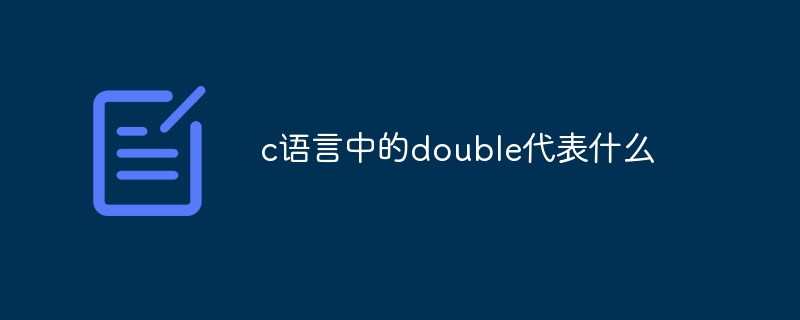
The double data type in C language is used to represent double-precision floating point numbers, with a larger range (-1.7e308 to 1.7e308) and higher precision (up to 15 significant digits), suitable for applications that require more In high-precision situations, double has the advantages of larger range and higher precision than float.

Double in C language
In C language, double is a floating point number Data type used to represent double-precision floating point numbers.
Features:
double can represent larger than float A range of numbers that can represent approximately -1.7e308 to 1.7e308. double has higher precision than float, and can represent up to 15 significant digits in the decimal part. Usage:
double The data type is usually used in situations where higher precision is required, such as:
The difference between float and float:
Compared with the float data type, double has the following advantages:
Example:
Declare a double variable:
double pi = 3.141592653589793;
Output the value of pi:
printf("Pi is approximately: %f\n", pi);Note:
double data type precision Higher, it takes up more memory space and processing time. float data type is sufficient unless higher precision is required. The above is the detailed content of What does double stand for in C language. For more information, please follow other related articles on the PHP Chinese website!




